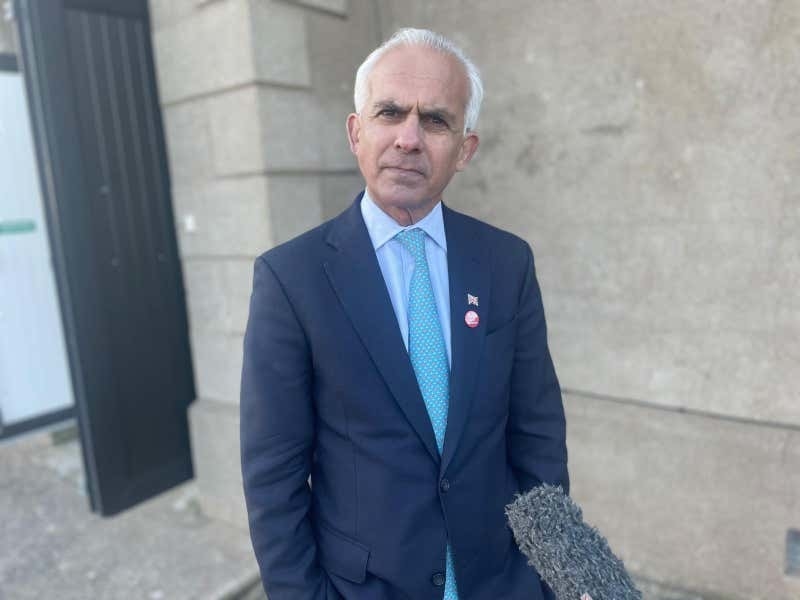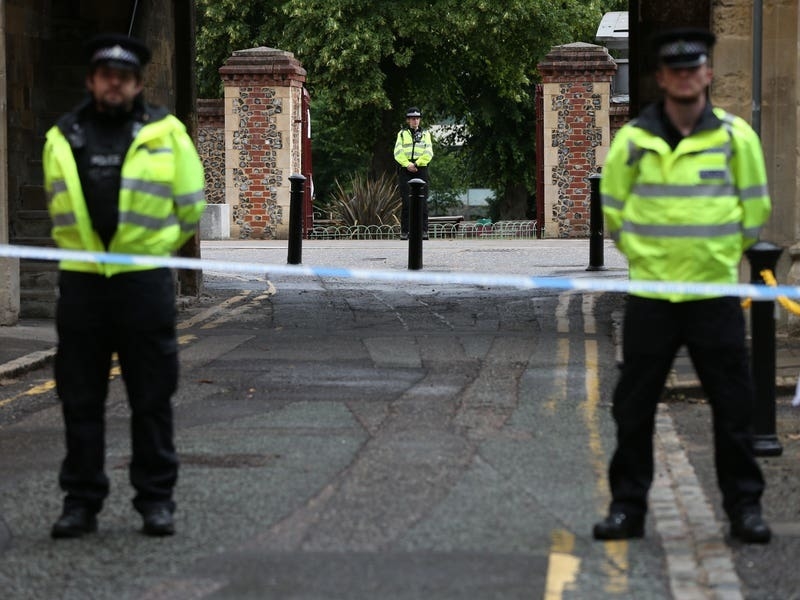ADVANCE JERSEY
THE States Assembly has wasted too much time navel-gazing over the last 20 years.
Advance Jersey’s position is simply stated: there are too many States members – around 42 would be appropriate – and there should be one class of member; the Assembly should choose its own speaker. We will appoint a standing Electoral Commission, with no serving politician involved, to review such matters as the distribution of seats and electoral conduct. We believe ministers and those who chair scrutiny panels should be appropriately remunerated. There should be an Ombudsman empowered to rule on complaints of maladministration.
***
ASPIRATION JERSEY
FEW tales are sadder than the numerous failed attempts of the States, led by the Council of Ministers, to reform itself.
No one doubts that our system of government is outmoded and needs to be adapted to meet the needs of the Island in the 21st century. But in tinkering with the constitution we should take to heart the Hippocratic Oath sworn by all newly-qualified doctors: First, don’t make things worse.
Our government machine is creaking, and urgently needs reform. But we can’t afford to get it wrong by implementing the half-baked ideas put forward by those with vested interests. We will overhaul the ministerial system to achieve greater cohesion and accountability, redistribute seats to ensure urban voters get a fair say, and ensure election candidates for the States go on record with meaningful and specific programmes.
So, what could be worse than the current arrangements? Plenty. Multi-member constituencies, as well as breaking the links between parishes and the States Assembly, would mean longer lists of candidates (perhaps 20 or more, all making implausible promises) from whom voters would have to choose a handful. Who wants to go to that much trouble? Cue even lower turnouts and the ‘old guard’ clinging on simply by name recognition.
What about reducing the size of the Assembly? That means fewer members independent of government capable of holding it to account, and a smaller talent pool from which to draw ministers. Is this really what we want?
Our tendency to run departments as silos competing with one another for scarce resources is mitigated by the principle of collective ministerial government, which at least promotes teamwork. But now the Chief Minister wants rid of it. How would that help deliver cohesive, joined-up government?
Greater co-ordination across States ministries would be a good thing, but it can’t be achieved just by legislation, or simply by appointing a high-ranking official. It requires the Council of Ministers to step up, making policy together, setting priorities, in fact acting as a team. Isn’t that what leadership means?
So long as it behaves instead as a squabbling talking-shop, our highly-paid but unaccountable supremo will simply take the reins himself. That’s no way to run a democratic government.
Our goals are straightforward. Better States candidates. A fairer distribution of seats. Clearer policy prospectuses. Encouragement for political parties (not just our own). Higher voter turnouts. Strong government, united around a shared agenda, and held to account by a reinvigorated scrutiny process.
***
FOR A BETTER LIFE
VOTER turnout rates in Jersey remain disappointingly low. At the last general election only two parishes managed to get more than 50% of their registered voters to express their opinion. The lowest turnout, in one of the St Helier districts was barely over 25%. Despite many attempts at reform our democratic system is still flawed and needs a major overhaul.
The voting system itself is too complicated. There should be a single type of States member. Taking St Mary as the smallest geographic unit with one States member, a total of 45 members would cover the island giving every area representation proportional to its population. Parish constables would continue in their role as head of the parish and would be able to stand for election as a States member, but should no longer claim a seat in the States automatically.
Voters base their choices on their overall knowledge of the candidates. Whereas some election hopefuls provide details of their policy position on a few key issues, many do not express strong views. In the absence of traditional party politics, the voting public should still have the opportunity to vote for the overall strategic direction that they wish the government to take. One way to achieve this would be to hold a second round of Islandwide elections after the new States Members have been chosen. At present, ministers and other positions are chosen by States members themselves, in a series of meetings after the main election. This process is inevitably accompanied by significant horse trading as prospective ministers offer deals and promises in exchange for support on their vote.
This secretive process should be replaced with a public vote. Ministerial candidates would put forward their policies for the job they wanted, attend hustings, answer questions and explain their plans in detail. It is likely at this stage that a group of politicians may collaborate to offer a set of candidates with similar views to cover the main ministerial posts. This is not a party system but it may provide voters with at least some meaningful choice of policy direction. All Islanders would then be able to vote directly for the new chief minister and the team of ministers.
Ministerial responsibilities may change from time to time but assuming that there will be around ten ministers forming the Council of Ministers, the remaining members would scrutinise their actions and provide policy challenges across key areas.
Backbench members should be able to challenge ministers, review internal papers, hold hearings and commission expert advice. These functions currently sit with the Scrutiny Panels but this role requires a stronger framework with more emphasis on ‘big’ issues such as taxation and population.
With four-year terms recently established, politicians should be concentrate on longer term planning. This could be facilitated with formal policy reviews across a range of subjects, following a similar model as the Island Plan which lays down a planning policy framework every ten years.
***
BIG PLOUGH
THE ten-year experiment with ministerial government has proved successful in some respects, such as the swift and united response to the Care Inquiry Report, but has failed spectacularly in terms of democracy and should either be scrapped or radically modified.
The old committee system of government was far from perfect but it did give all elected representatives a direct voice in decision-making. Ministerial government has marginalised over half of them, while simultaneously delegating more and more powers to unelected officials and largely unchallengeable quangos, commissions and so-called arm’s length organisations.
The result is too much real political power in too few hands, impotent opposition and, in effect, technocratic government by executive dictat. The same trend has been identified in many other jurisdictions but is particularly concerning in one which does not yet have a mature party system to provide balance and which, every May the Ninth, so passionately celebrates the restoration of democracy.
Big Plough will seek ways to reassert the supremacy of the States Assembly. In the age of spin and fake news, these will include the need for editorial controls on executive language, which is increasingly used to manipulate perceptions. The best (because worst) example is the current attempt to apply by stealth the title Government of Jersey to the Council of Ministers alone. They are not the Government of Jersey, which is instead composed of all the Constables, Senators and Deputies who make up the States Assembly and who perform various political roles, ministerial and otherwise.
Short of bringing back the old committee system, one possible solution to the current democratic deficit worth exploring would be to integrate the Scrutiny process more fully into the relevant ministries, allowing its members to be better informed, more engaged and more effective. The proposed departmental streamlining would make such a change easier to achieve.
Big Plough will also encourage greater emphasis on the role of the parishes in opinion-forming. Parish hall debates on major issues should become a regular feature of the political cycle, offering a ‘human face’ counterpoint to the manipulable central surveys favoured by the technocrats.
The tired old debate about the composition of the States will continue, no doubt. In the continuing absence of clear party lines, Big Plough favours the retention of the Constables as the most knowledgeable and responsive of the current membership. Having been tinkered with so pointlessly in the past, the Islandwide office of Senator should either be scrapped or restored to its earlier complement of 12, which at least had some historical basis and numerical scope when allocating the top jobs.
Beyond ideology, there is no compelling reason why the Bailiff should not continue to preside over the States and many reasons why he or she should.
***
JERSEY TOGETHER
OH dear. What a mess has been made of attempts to reform Jersey’s machinery of government over the years. So much so that the entire edifice of the States is now held in disrepute by much of the electorate.
The latest reforms, stimulated by the arrival of a new chief executive, involve streamlining and simplifying the bureaucracy of the States. In principle, Jersey Together supports these changes, and the focus on customer satisfaction.
However, the job of reform is far from done.
The problem
Jersey has appallingly low levels of democratic participation, manifest in exceptionally low voting turnouts, lower than almost any mature democracy in the world. On top of this, many elections are uncontested.
Electoral apathy stems from the understandable belief that voters cannot bring about meaningful change. This has been a pervasive feature of island politics for decades.
Too many decisions are taken in secret. For example, the decision to use the Waterfront site as security for the development of the Finance Centre, thereby ruling it out as the site for the new hospital, was only revealed reluctantly, months after the event.
Currently Jersey’s electoral system gives voters in some parishes (mostly the rural parishes) significantly more weight
(and therefore power) than others. This contributes greatly to the way in which Jersey’s electoral system deters participation.
Attempts at reform have been partial, inconsistent, and lacking in any coherent philosophy.
Although we support the new chief executive’s reforms to streamline public services, we have concerns. There is a danger of excessive centralisation of power in the hands of the Chief Minister and the chief executive. There is also a danger that the role of chief executive will become politicised, with the potential for highly political decisions to be taken by a powerful chief executive under the guise of administrative efficiency.
Our proposals
Increasing participation is vital if we are to deliver a democracy in which everyone feels they have a stake and influence that counts.
To achieve this we propose electoral reform based on the principle that every vote should count for the same. We believe the simplest and best way to achieve this is to create a single class of States member, elected from multi-member electoral districts. This would mean the removal of the Constables and the Senators from the States. However, we are prepared to consider other ways of ensuring that every vote counts for the same.
We believe that along with multi member districts, we should move from “first past the post” voting to single transferable vote (where voters rank their preferences).
We support the removal of the Bailiff as president of the States Assembly. Far from being a benign figurehead, the Bailiff’s role cements significant power in an unelected figure chosen from an elite establishment group. It is time for the States to choose its own president.






